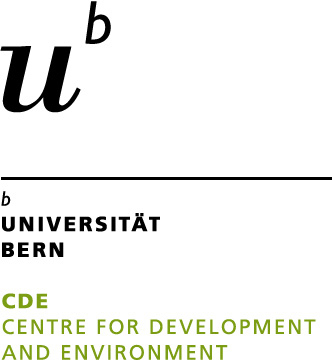CDE is Switzerland’s Centre of Competence for Sustainability. It is engaged in several projects in the areas of research, implementation, and teaching for sustainable development in several world regions of cocoa cultivation as well as in the entire cocoa sector.
CDE was interviewed by SWISSCO’s Executive Director Christian Robin.
What made the CDE join the Swiss Platform for Sustainable Cocoa (SWISSCO)?
On the one hand, recent developments at the Swiss Platform for Sustainable Cocoa (SWISSCO) offer a chance to strengthen the sustainability of Swiss cocoa value chains over the next years. These developments include SWISSCO’s Roadmap 2030, the formation of European Working Groups for example on Living Income and Deforestation-free cocoa as well as upcoming projects. CDE aims to contribute to these developments. On the other hand, CDE is currently strengthening its activities in the pursuit of sustainable cocoa through new projects and team members.
From your perspective, what added value can the research sector offer in a multi-stakeholder initiative such as SWISSCO? What role can the research sector play?
In our view, science and research-for-development can make several contributions to a multi-stakeholder initiative such as SWISSCO. First, sustainability commitments are as credible as the methods used to verify them. The research sector of SWISSCO offers state-of-the-art methods to generate scientifically reliable and valid knowledge about the sustainability and unsustainability of initiatives in cocoa value chains.
A second role is the knowledge broker. We can share data, knowledge, and experiences made in different cocoa-producing regions and value chains worldwide. As scientists, we often work in different places of the world, with local producers, cooperatives, the private sector, and also national and international decision-makers. In joint learning processes that bring together representatives of all sectors of SWISSCO, we can co-produce knowledge about which sustainability initiatives work, where and why in some cases, and why they may not work in other cases or regions.
A third role concerns innovations. As scientists, we are often involved in co-creating social, technical, or legal innovations for more sustainable solutions. This typically happens in concrete solution-oriented projects together with project partners from policy, civil society, and the private sector.
Finally, the students that SWISSCO’s university partners are educating are future change agents, innovators, and decision-makers. Therefore, we seek to strengthen their sustainability competencies. This includes the integration of key insights from SWISSCO’s engagement for sustainable cocoa in university courses.
What issues relevant to the cocoa sector is the CDE currently working on? What content-related inputs can we look forward to?
CDE currently implements projects for sustainable cacao in four key topics:
- First, we aim to develop a compass that shows what value chain governance approaches in Peru and Switzerland work best to enhance living incomes and human well-being, under what conditions. Examples are certifications, inclusive business, and solidarity economy approaches.
- A second topic is landscape approaches. We are currently completing an in-depth review of design principles for landscape approaches and would like to contribute to sustainable cocoa sourcing landscapes. Moreover, we are supporting a landscape approach in Madagascar by monitoring the social learning that occurs in this multi-stakeholder process.
- Third, CDE is involved in a project that develops scenarios for sustainable food systems in Switzerland. One of the foci is cocoa value chains between Ecuador and Switzerland.
- Fourth, a new collaborative project of CDE will analyse how the EU, its Members States, and EFTA countries can protect biodiversity outside Europe in a socially inclusive way through regulating trade relations, supply chains, and biodiversity-no-net-loss policies.
In Madagascar, there is already a link to SWISSCO projects. What role do you play in the landscape project in the Sambirano Valley coordinated by Helvetas? What is your approach there?
CDE supports Helveta’s and SECO’s project “Climate-resilient cocoa landscapes in Madagascar” in monitoring social learning in cooperation with Helvetas’s local team in order to foster appropriation of the cacao landscape management by the local actors.
Find more information here about the Centre for Development and Environment.

